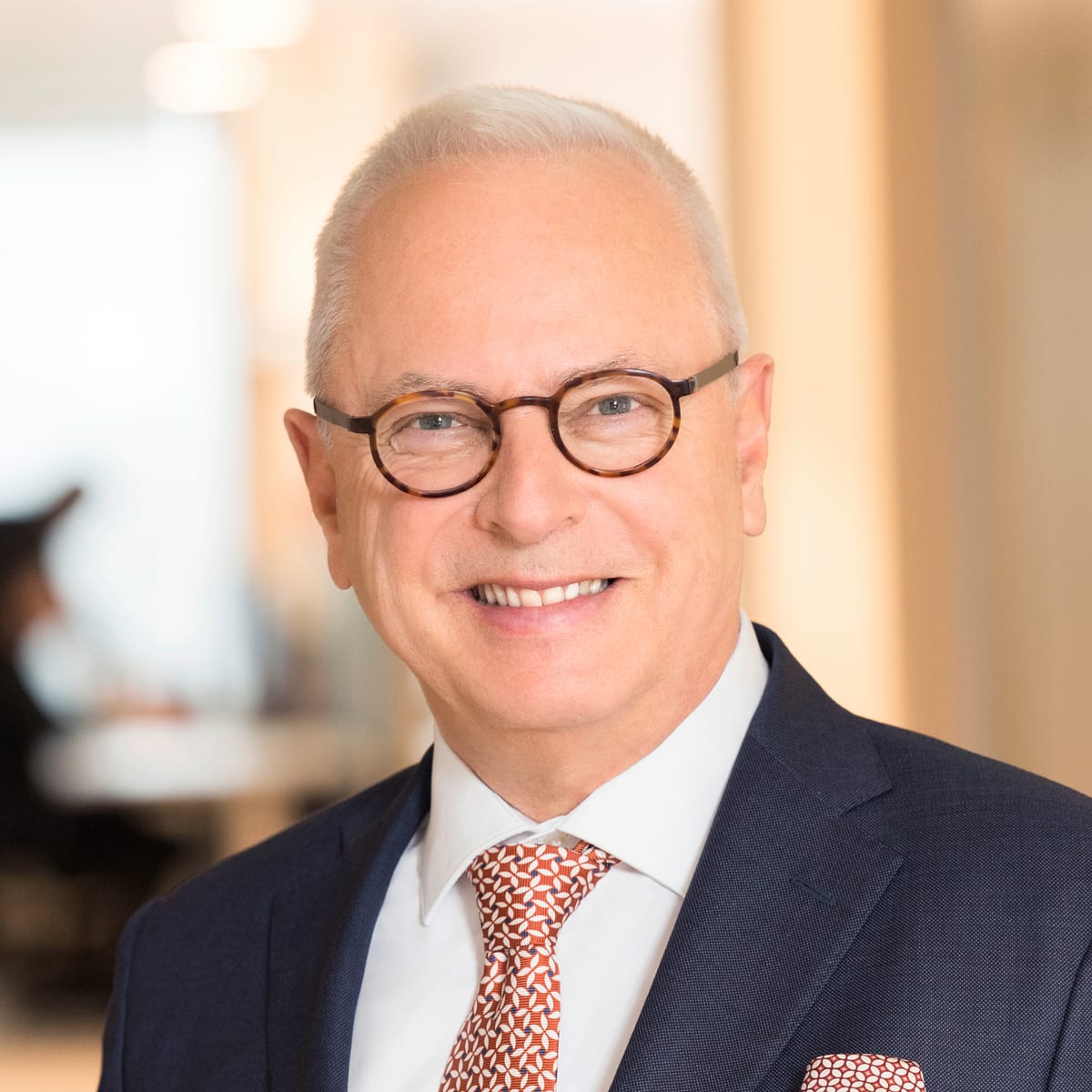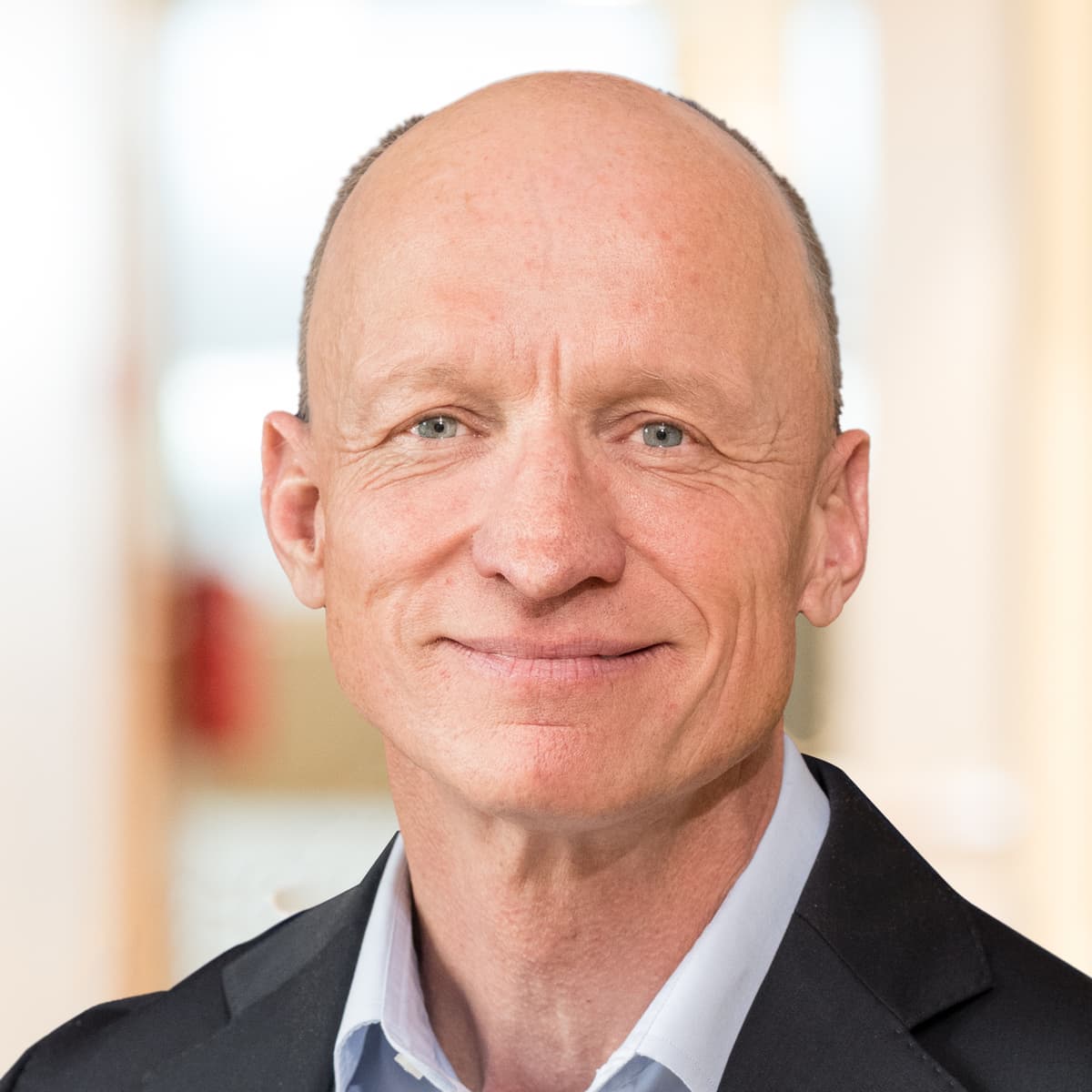«Last year, we succeeded in boosting the contribution margins by about 15 per cent. This year, we expect a further increase per contract.»
Wilke Stroman, CEO Deutschland
For all new shareholders of mobilezone: What is your business model or recipe for success in Germany?
We conclude mobile communications contracts for the mobile communications providers Deutsche Telekom, Telefonica and 1&1 and combine these with the top smartphones from the manufacturers Apple, Samsung, etc. In this respect, we are usually the biggest retailer for our partners. This bundling allows us to design very attractive offers for our customers. Moreover, we concentrated our sales on the Internet very early on, more than 20 years ago, and as a result are market leaders with our portals Sparhandy and Deinhandy.
In addition, independent traders with various shop formats conclude our mobile communications contracts. Unlike in Switzerland, we do not operate any physical shops of our own in Germany.
What's your take on mobilezone Germany in the first half-year?
A very good one. We exceeded all of the goals we set ourselves: Both the sales figures and turnover and the result exceeded the targets after six months.
You exceeded the very good previous year by 19 per cent with an EBIT of CHF 20 million. How do you explain this development and what do you expect for the second half-year?
We got off to a flying start from the very successful fourth quarter of 2021 and chalked up record sales figures. In B2B sales, we benefited from the coronavirus restrictions to date being far less severe in 2022. We were successful in every business segment in terms of sales. We also hope to be equally successful in the second half-year. The competitive intensity of the second half-year is traditionally greater, for example, through the campaigns around Black Friday. At the same time, there are also more sales opportunities. We are also optimistic that we can make the second half-year similarly successful.
Where were the challenges for mobilezone Deutschland in the past first half-year 2022?
Two members of the German management team, Jens Barth and Thorsten Fluck, left the company in the first half-year, as announced in autumn 2022. Fortunately, we already succeeded in recruiting two absolute heavyweights from the sector for our top management at the end of 2021. We are well-positioned for the online business with Mathias Sieg and with Sascha Hancke for purchasing. Mathias Sieg has been on board since the beginning of April 2022, Sascha Hancke took up his work on 1 August 2022. The new management team has been in charge since May 2022 with positive effects on everyday operations.
After two years of pandemic, we had the challenge of getting employees back into the office from their home offices. Fortunately, the home office obligation was lifted in March 2022. Since then, we have been enjoying the lively activity in our offices, although we had to come to terms with having to adjust several ways of working in the back to office routine. We offer our employees an ultra-modern environment in order to meet their expectations of our company. To date, the good feedback has shown we are on the right track.
With the brands Sparhandy and Deinhandy, mobilezone has positioned itself in the market as the leading online retailer in Germany and can look back on very positive development.
What further developments are planned for these platforms?
The first half-year was enormously successful for both portals. We increased year-over-year sales every month. We are in the final phase of elevating our platforms to a new uniform technology. We will convert all of our end-customer portals to this technology over the next twelve months. This will open the way to operating these simultaneously and far more efficiently than the previous systems.
We have decided no longer to force the expansion of new product ranges and marketing mobile phones without contracts and accessories on a separate portal but instead to benefit from the brand familiarity of the Sparhandy and Deinhandy portals. The products that had been planned for Pricezilla to date will be integrated into Sparhandy and Deinhandy. This will improve our options for operating successfully in the low-margin business without contracts.
In last year's annual report, you mentioned that at Pricezilla you concentrated on the technical further development of the platform and in this way laid the foundation for the transfer of Sparhandy and Deinhandy to the new shop technology in the course of 2022. What can you say about how far the conversion has come?
At Pricezilla, we have been able to comprehensively test and improve the new technology in the last twelve months. We are now migrating our main portals Sparhandy and Deinhandy to this new technology. Customers will notice the differences quickly – the new technology is much faster and more convenient to use. There are additional advantages for us internally: moreover, we can react to market circumstances faster with the new technology. In future, we will focus on these two end customer portals and offer the Pricezilla product range on both sites. Pricezilla will be merged completely with Sparhandy and Deinhandy – the Pricezilla brand will disappear.
When can we expect significant sales to appear in the shopping baskets for accessories?
We will only achieve full flexibility in marketing next year when all of the portals are running on the new technology. We have implemented a simplified product range during the transition period that can be ordered with a postpaid mobile phone. Undoubtedly, we will be unable to exploit the full potential this way but at the end of year, we will be able to report initial sales.
In the online contract business, you want to focus more on mobile communications contracts with higher margins in order to boost the contribution margin overall. What is your assessment here?
Last year, we succeeded in boosting the contribution margins by about 15 per cent. This year, we will continue to increase the contribution margins per contract. The main driver for increased profitability is the volume growth in contract transactions.
High, the in-house mobile virtual network operator, already grew constantly in the 2021 fiscal year. What is your assessment of the first half-year 2022?
The growth of High has been considerable in the first half-year, but it has not (yet) met our forecasts and expectations. Currently, we're in talks with the mobile communications providers to further expand our portfolio next year. Our customer base grew by 16 per cent to 80,000 customers in the first six months. We even grew by 21 per cent with half-year sales of CHF 10.3 million. In our marketing, we focus on "SIM-only" offers, i.e. contracts without net mobile telephones. Up to now, we have not been particularly present in this segment, but we are now closing this gap in marketing. However, we also see unexploited opportunities
in this sector – we want to expand our range here accordingly.
Could you make a forecast about High for the second halfyear 2022?
Currently, we assume that a growth rate analogous to the first half-year 2022 is possible. This means we'll expand our customer base to over 90,000 customers by the end of the year. We are in a dialogue with the mobile communications providers to be able to offer our end customers even more varied products. Consequently, we are legitimately optimistic that we will not only be able to hold the pace of growth next year as well, but move it even higher.
mobilezone gave an optimistic outlook for the B2B trade in the annual report 2021. Has this optimism been vindicated?
After this segment had been hit particularly hard by the comprehensive lockdowns in 2021, outdoing the figures of the previous year naturally wasn't difficult. In the meantime, we have reached the pre-pandemic level with a sales increase of about 20 per cent. Given that not all dealers survived the crisis, this makes us even more optimistic.
You announced that 2022 would be characterised by the development of B2B partners and the creation of additional service offers to retain the business partners. What does this mean specifically?
We want to be the number one partner for our dealers. Our partnersshould be able to process all networks and their hardware acquisition via us. We have made good progress in this respect – even if the development cycles in commerce are slower. At the same time, we hope to be able to grow in B2B commerce next year too.
In conclusion, let's talk about money: How do you invest your own money and what do you rely on in doing so?
I try to diversify my assets. Among other things, I've invested in property. But my main focus is on investments in the equity market. I received half of my share in the sale of Sparhandy in mobilezone shares. I had to observe a two- or three-year holding period in this regard. The mobilezone shares have proved to be an excellent investment, supported by an attractive dividend, and I intend to keep a large proportion permanently. Therefore, I guarantee the success of mobilezone with a large part of my own assets.
My personal investment strategy is based on the three pillars of reliability, credibility and plausible actions. I developed Sparhandy as a 20-year old and always orientated myself around these standards. Success has proven me right and, therefore, these premises also apply to investment products or the competition. I have got on very well with this way of thinking so far, and I'm also convinced that this strategy is forward-looking. Accordingly,
I'm very optimistic about the future of the mobilezone Group.

